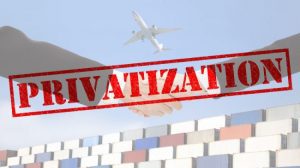
Deputy Foreign Minister of Ukraine Vasyl Bodnar discussed with Ambassador of Spain to Ukraine Silvia Cortes Martin the preparation of the visit to Ukraine of Prime Minister of Spain Pedro Sanchez and the holding of a large-scale business forum.
“Meeting with Spanish Ambassador to Ukraine Mrs. Silvia Cortes Martin. We focused on preparing Pedro Sanchez’ visit to Ukraine and holding a large-scale business forum. We have agreed to take measures to develop the legal framework,” Bodnar wrote on Twitter on Wednesday.
He also thanked the ambassador for Spain’s support for Ukraine’s European integration path.

Mobile network operator Kyivstar has increased its 4G (LTE) network coverage in 19 regions and connected 1,195 more settlements to new mobile technologies.
According to a Wednesday report of the press service of the company, for this the operator has launched the technology of high-speed data transmission at 202 base stations.
The press service said that 493,000 residents of small settlements received the opportunity of having access to high-speed mobile Internet.
The 4G communication is supported by 23,600 Kyivstar base stations, which makes it possible for more than 87% of the Ukrainian population to access new mobile technologies.
According to the operator’s plans, by 2022, access to 4G should be provided for 90% of the population.

The Cabinet of Ministers has supplemented the list of goods originating from the Russian Federation, prohibited for import into Ukraine, with wheat, sunflower oil, detergents, and paper.
According to the document, the list of prohibited goods was also replenished with surfactants, newsprint, cardboard, kraft paper and kraft cardboard, toilet paper, cosmetic napkins, hand towels, tablecloths and napkins.
The list also includes containers, boxes, bags, packing bags, ropes made of other alloy steels, drilling tools, other trolleys and undercarriage balancing trolleys, axles, wheels and their parts, according to the resolution.
The resolution comes into force ten days after its publication.

The World Bank has raised its projection for Ukraine’s gross domestic product (GDP) growth in 2021 to 3.8%, while early January it estimated the prospects for recovery at 3%.
According to the World Bank’s Europe and Central Asia Economic Update, Spring 2021: Data, Digitalization, and Governance, the forecast for GDP growth in 2022 has been worsened to 3%, compared to 3.1% in January.
The World Bank said that only a partial recovery in GDP growth of 3.8% is expected in 2021, given high uncertainty regarding the rollout of the vaccine and the slow pace of structural reforms to address bottlenecks to investment and to safeguard macroeconomic sustainability. The GDP growth projection of 3.8% is also underpinned by positive base effects in agriculture and processing industry, the World Bank said.
In addition, the World Bank expects inflation this and next year at 5%, in 2023 – 5.8%.
The current account deficit in 2021 will be 1.3%, in the next two years – 2.8% and 3.3%, respectively, World Bank analysts predict.
The net inflow of foreign direct investment in 2021 should increase by 2.4%, the next year – by 2.6%, and in 2023 it is expected the growth to triple and amount to 6.2%.
At the same time, the World Bank predicts a reduction in public debt in relation to GDP from 63.2% in 2020 to 62.4% in 2021, as well as 59.7% and 57.8% in the next two years.
According to the bank’s expectations, after a 7.4% decline in 2020, Ukrainian exports will grow by 3.4% this year, and by 2% and 4.4% in 2022 and 2023, respectively. As for imports, after a decline of 11.5% last year, this indicator is projected to grow by 6.8% this year, 5% in 2022 and 4.8% in 2023.
As reported by the State Statistics Service, Ukraine’s real gross domestic product in 2020 fell by 4% after four years of growth.

The mobile operator Vodafone Ukraine in its retail network Vodafone Retail in 2021 intends to launch a model of buying a smartphone with a bundle of services, Director of Vodafone Retail Olena Myronenko has said.
“In our country, only smartphones without prepaid services were previously sold. We now place a small emphasis smartphone deals with bundles in our network. This year we really look forward to the launch of the European model, when one can buy a smartphone on a one-year or two year contract and get a rather interesting discount. This is our tiny idea and, most likely, we will launch it this year,” she said at a press conference on Tuesday.
At the same time, Myronenko said that the deals will be available only for phones in the medium and below medium price segments. For premium segments, she said, it will not be in demand.
“According to our research, the ARPU of our customers who use the iPhone is not 3-5 times higher than that of a customer who uses a standard mid-segment smartphone. Typically, the ARPU of an iPhone user is 30-50% higher, which does not allow us to equip an iPhone with such cost of services to cover it,” the director of Vodafone Retail said.
“In order to subsidize the iPhone and sell it at a discount, the operator must have an ARPU that allows it to cover the cost of this smartphone at the expense of its income. The average ARPU in the United States today is $50. Our subscriber’s ARPU is $3. That’s when our ARPU will be at least $15 then we can talk about the iPhone,” Myronenko said.
Vodafone Retail currently has more than 200 stores in 82 cities of Ukraine.

The Verkhovna Rada has passed at the final reading government’s bill No. 4543 on unlocking the large-scale privatization process.
An Interfax-Ukraine correspondent has reported that 257 MPs backed the bill with the required 226 votes.
As reported, large-scale privatization was suspended due to the entry into force of Law No. 540-IX dated March 30, 2020, which, in connection with the quarantine, imposed restrictions on the privatization of large facilities – both preparation for sale and holding the auctions. Bill No. 4543 removes this provision.